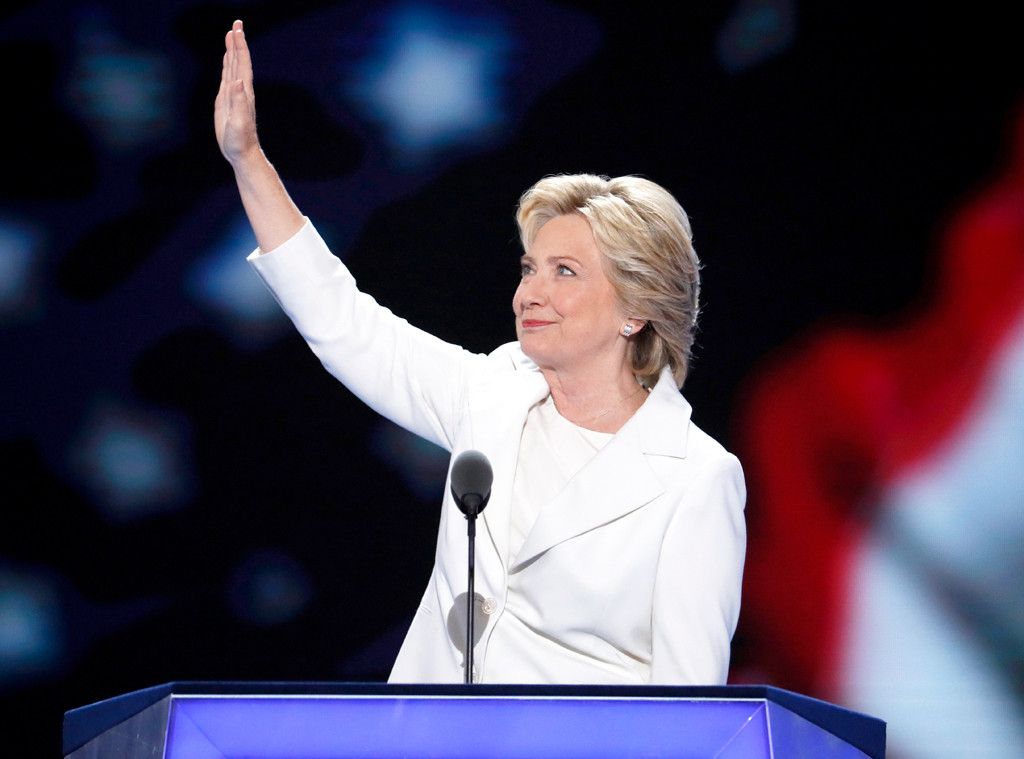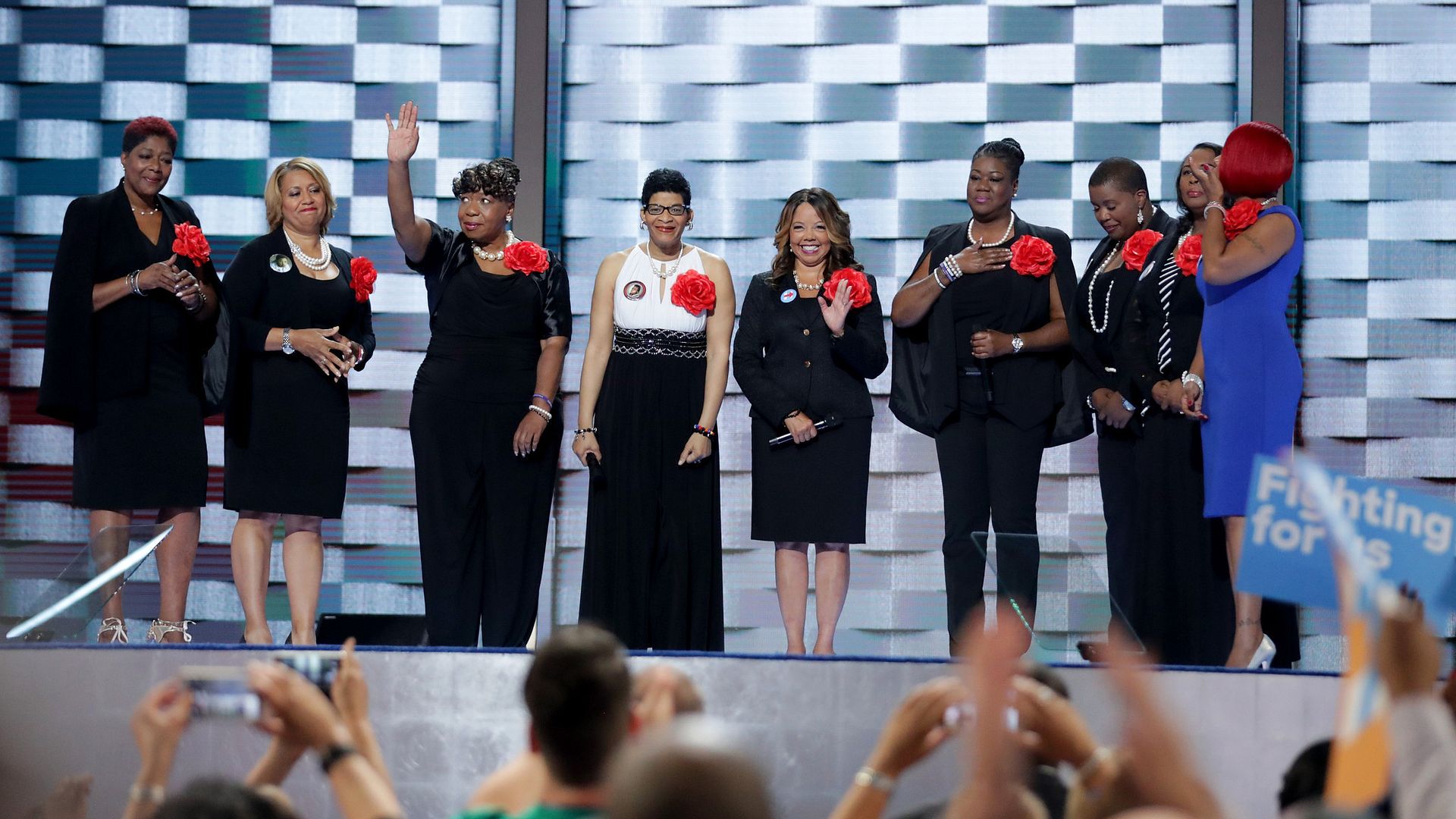What Hillary Clinton's Historic Win Means to Black Women
 |
| Paul Morigi/Getty Images |
by Kimberly Foster @KimberlyNFoster
No matter the outcome of the presidential election in November, history will remember Hillary Clinton as the first woman to get to the top of a ticket for a major party. It is a tremendous feat.
In Philadelphia last week, the Democratic National Convention has been a celebration of her achievement. The Party’s most well-liked and well-respected faces gathered to laud the former Secretary of State’s credentials and commitment.
But Clinton, herself, did not address the nation on stage until Thursday when she made sure to underscore what her victory means to girls and women in the United States.
“When any barrier falls in America,” she proclaimed before a rapt crowd. “It clears the way for everyone.”
This was her time to continue the journey that was halted in 2008 by then-Senator Barack Obama. After dropping out of the presidential race, Clinton told the world that 18 million cracks had be put into the mythic glass ceiling that has long stunted women’s achievement. She was referring to the number of votes she received in primaries.
As she accepted the nomination at the Wells Fargo Center in Philadelphia, Clinton reflected on finally succeeding in breaking through. “When there are no ceilings, the sky's the limit,” she declared, capturing the optimism of American Exceptionalism.
But while Clinton’s win has been billed as a watershed moment for all women in the United States, questions persist about for whom her rise signals change.
The answer is unclear to Black women who continue to fight for visibility and safety inside and outside of the political arena; consequently, for some, feelings about her big win are mixed and expectations about whom she’ll represent are low.
***
Though Black women’s work has been instrumental in every feminist movement, they have had to fight for recognition of that fact. Beverly Guy-Sheftall writes in the opening of the Black feminist anthology Words of Fire, “The history of American feminism has been primarily a narrative about the heroic deeds of white women.”
The Democratic Party’s nominee can't escape the past, and her embodiment of an exclusive, second wave feminism reminds Black women of the interlocking oppressions they’ve faced, said Evelyn M. Simien, Professor of Political Science at the University of Connecticut and author of Historic Firsts: How Symbolic Empowerment Changes U.S. Politics.
“For some African American women, Clinton can appear to be yet another privileged white woman who will be entering the White House,” Simien told For Harriet.
“African American women have always viewed white women in this kind of class-based relationship whereby she is more privileged [and] has greater resources economically to pursue her own life goals and careers. Surely, Hillary Clinton is just that.”
18-year-old Jada Peten agrees with this assessment. She attended the DNC as a Bernie Sanders delegate. Jada is from a small-town in Arkansas and would not have been able to afford the trip without donations from Sanders supporters. She even used use some of the money she had saved for her first year at St. Louis University.
Showing up for her candidate was a priority, and Clinton’s nomination is a blow. Peten knows sexism exists, but this moment doesn’t mean much to her. That much-talked-about glass ceiling simply doesn’t exist in her mind. “I had always known that women could do it,” she relayed.
Her biggest reservation is that Clinton is too far removed from the average person’s economic concerns to be a viable candidate.
“I know what it’s like to struggle and be poor,” said Ms. Peten.
Hillary Clinton does not have that experience. She grew up in the affluent suburban enclave of Park Ridge, Illinois. NPR reporter Tamara Keith described the circumstances of her upbringing as the equivalent of “growing up in a Norman Rockwell painting.”
That background and her voting record make Peten wary. “She definitely appeals more to the billionaires than the poor here in America.”
For these reasons, she is not sure if she will vote for Clinton in the fall.
Despite the teenager’s uncertainty, other Black women will show up. And If the past two presidential elections and this year’s primaries are any indication, they will do so in huge numbers. Since the passage of the Civil Rights Act in 1964, Black women have been reliable Democratic voters. And in 2008 and 2012 they came out at a higher rate than any other demographic group.
Peten, however, is an important reminder that feelings for Clinton are not the same across all segments of Black women. “We have to look closer at age, generation, and the cohorts within these groups,” said Simien. There has been a distinct generational divide. Black voters under 30 were more likely to vote for Sanders in the race to the nomination than their older counterparts. While Black women over the age of 45 were Clinton’s most loyal voting bloc and that same group represents a growing share of Democratic Party voters.
Party loyalties and ideological commitments, however, are not going to close the enthusiasm gap, Simien noted. Any group of Black women is unlikely to feel the same sense of pride for Clinton’s triumph as they did for Barack Obama’s in 2008.
Melissa Robbins certainly does not. The 43-year-old military veteran, political organizer, and mother of four describes herself as an “overjoyed” Obama voter. So excited, in fact, that the Pennsylvania-native was the first person in line at her polling station on November 4, 2008. “I was like a child in a candy store,” she recalled of the campaign that aimed to return hope and change to the political landscape. Robbins arrived at the DNC an elected Bernie delegate and plans to vote for Clinton in the general election. Like Jada, she’s not moved either.
“I don’t know if the shattering of that ceiling means more for me,” she said wistfully
Clinton’s achievement is still an individual one, and Melissa wants to know what is going to happen to Black communities. This plight is still her primary concern.
“It’s fantastic that here in America we’re making progress as women, but I have to let you know,” Ms. Robbins said with some sadness. “I look to what’s happening to my people of color in this country. That is what stands out.”
Robbins’ policy priorities and her lack of zeal are not unexpected. A Black woman’s racial identity is more likely to influence her vote than her gender, said Simien. Black women’s needs are distinct from those of women of other races; therefore, they cannot be collapsed into a singular, gendered agenda.
Hillary Clinton’s legislative reputation still suffers from her connection to policies instituted in the 80s and 90s that disproportionately affected Black women and the communities they are a part of, Leah Rigueur, professor of public policy at Harvard’s Kennedy School, told me.
Clinton was First Lady when the disastrous welfare reform legislation was signed by her husband. The result of which was to sink more families into intractable poverty. Holding a wife responsible for the misdeeds of her husband is misguided and, likely, sexist. But Clinton was a proactive voice for the much maligned Violent Crime Control and Law Enforcement Act. In 1996, she endorsed it by referring to young Black men as “super predators.” In her remarks, she also described them as “kids with no conscience and no empathy” that needed to be “brought to heel.”
Those words and the Clintons’ role in bolstering the prison industrial complex still give Robbins pause. “To know men and women have sat in cages for 30-40 years,” she explained. “Families have been broken. Grandfathers, fathers, sons, and uncles have rotted away in cells—I can’t turn a blind eye to that,” she said.
But Clinton is now trying to make amends. Thanks to activists and organizers she has had to address criminal justice reform and mass incarceration explicitly. After being confronted by a Black woman activist, Ashley Williams, at a fundraiser in February, she expressed regret for invoking the debunked “super-predators” theory.

Now Clinton is vying not only for Black women’s votes, but their trust. Her campaign has attempted to make it clear that her regard for them extends beyond rhetoric. The most visible nod to Black women’s work and policy interests occurred on the second night of the Democratic National Convention. Nine women whose children were killed in gun violence, called Mothers of the Movement, took the stage to remember their lost and attest to Clinton’s compassion. “Hillary Clinton isn’t afraid to say that Black Lives Matter,” said Lucia McBath, the mother of Jordan Davis. The women revealed that Clinton has met with them privately at length and invited them to share their stories not he campaign trail. Their sincerity and fervor meant to ease the discomfort many have about Clinton’s seemingly opportunistic shifts on the issues of the day. The reception was mixed.
Robbins is tentatively hopeful that the displays are genuine.
“I want to believe that the Secretary heard their words,” she she said. “I want to believe that the Secretary felt their pain. I want to believe that when she goes to bed at night, she doesn’t go to bed comfortably sleeping.”
Peten on the other hand was put off by the political theater. “It’s kind of distasteful to me.
“I didn’t feel like there was any difference between them using the Mothers of the Movement and when the Republican Party decides to use a mother of a guy who died in Benghazi,” she explained
For State Rep. Emilia Sykes, fear of the consequences of a Trump administration takes precedence over any anxiety about Clinton’s evolving views.
The 30-year-old was a pledged delegate at the DNC and considers herself a Clinton supporter, though she was “not very excited about [her] early on. But now she’s all in because of the chaos she believes a Trump presidency would cause.
“We cannot afford to not have Hillary Clinton in that White House,” said Rep. Sykes.
She represents Ohio’s 34th district, and though she still has concerns about Clinton, she’s going to “push through it” and embrace her critical role as a surrogate in a swing state.
She spoke with urgency and assuredness and displayed the kind of optimism one would expect of someone who believes deeply in the political process. A child of two politicians, Sykes takes seriously her responsibility to advocate for herself and her community.
“I am confident that I will do what it takes to make sure she represents my interests,” she said of Clinton. According to Rigueur, as long as Black women have been participating in politics, they have taken politicians to task as “accountability holders.” Sykes is merely stepping into that legacy.
The view, however, is not completely rosy. Despite her political roots and aspirations to make change, she doesn’t see herself in Clinton. “It’s not the same…for a black woman to see her rise to be leader of the free world,” she said.
***
There can be no denying the historical significance of Hillary Clinton winning the Democratic Party’s nomination. Rigueur confirmed, “In the context of a larger political history, this is very much historic and should be treated as such.”
But she does have a responsibility to tend to the internal conflict some Black women are facing.
That Black women's lived experiences preclude them from seeing themselves as future Hillarys is a reflection of the many fights they face on the front lines of classism, racism, and sexism. To begin to surmount the limits of symbolic representation, Clinton will have to unpack lots of historical baggage, plenty of which she created.
Hillary will get the votes, but a sustained trust requires her to show up consistently for Black women's needs. There can be no good-will without consistency.
Correction: A previous article misspelled Jada Peten's name as "Teten."
Kimberly Foster is the founder and editor-in-chief of For Harriet. Email or Follow @KimberlyNFoster

No comments: